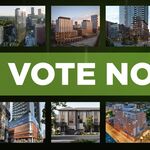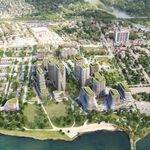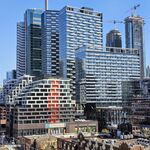It was just over 4 years ago (March 2011) that it looked that transit on Toronto was back on track. Ford and McGuinty just agreed to a compromise that would be acceptable to both the left and right of the political spectrum. Savings from this proposal from the $8.2B would be used for other transit projects (Sheppard subway). Shortly before (December 2010), metrolinx stated that they would be reporting on an
elevated Eglinton line.
But then 10 short months later (January 2012), the report on the Eglinton line never happened, Council took the transit file from Ford, did a quick dog-and-pony show study to promote the old plans, and reverted (for a short time)
back to the LRT plan.
What happened next under the control of the TTC Board, Council, and the Province was truly a disaster. First Council voted to kill the Eglinton plan (March 2012) without a
report – one that was created just 3 months after the vote (and still inexplicably not considering the elevated portion). In the fall (2012), Council voted again to re-affirm their commitment to the LRT, followed shortly by Provincial transportation minister (July 2013) encouraging Toronto to reconsider their LRT choice, and they agree. Then the Provincial government runs a key by-election (August 2013) as subway champions. Council then votes (fall 2013) to build a “Scarborough subwayâ€.
In late 2013 (December), we learn from
Michael Schabas that Metrolinx hid the Eglinton crosstown report from Toronto Council and voters during the 2012 LRT votes and the “Scarborough subway†fiasco. It was only release through FOI. Then
John Lorinc determines (spring 2014) through his own FOI that the Liberals fingerprints were all over the plan to resurrect the subway. Then due to continued public frustration with the transit plans, Mayor to be Tory comes up with (May 2014) a SmartTrack plan.
Where we were 4 years ago : Spending and extra $1.5B burying the Eglinton LRT – and looking like it would only be $0.3 to $0.5B when elevation is considered.
Where we are now : Spending an extra $1.5B to $2B (over the LRT) for a Scarborough subway and another $1.5B to $2B for tunneling SmartTrack under Eglinton West (instead of elevating the ECLRT and taking SmartTrack along the GO corridor to Brampton). This is a total of close to $3B extra spending and a loss of 4 years of progress.
It still looks like the least expensive (and fastest to construct) alternative is to tear up a few hundred metres of the soon to be constructed tunnel near the launch shaft (we don't want to delay the launch) and relocate the tunnel to the south side of Leslie. Then build Eglinton along the south side and then elevated from DVP to Kennedy. Of course, this will now cost maybe $700M extra for elevation and relocation, but it does save the $1.5B to $2B on SRT vs. Scarborough subway. The currently planned construction contract would terminate at the the tunnel portal, and the elevated portion would become a separate contract. The tunnelled portion is on the critical path, so the elevated portion afford a one or two year delay and still allow the line to be built for 2021. The EA is already complete for this entire route, so only minor revisions need to be filed for elevation (as was done near Black Creek, and similar to what was proposed near Leslie). This entire elevated poriton could probably be completed before a Scarborough subway construction even starts (i.e. completing an EA and putting together a contract).




